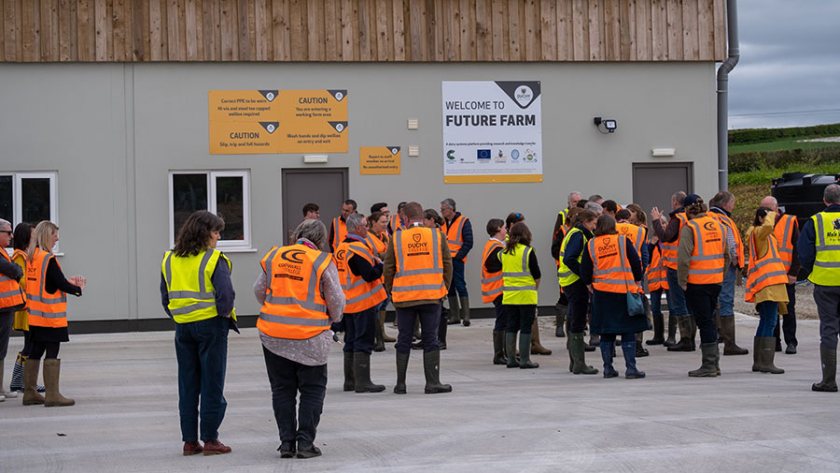
A first-of-its-kind dairy centre for England has officially launched at Duchy College, where researchers will help build upon the sector's sustainability credentials.
Future Farm, which aims to improve efficiency, welfare and technological advancement in dairy farming. was first opened in November 2020 but received no official launch due to Covid rules.
The centre was finally launched last week, on 6 May, at Duchy College's Stoke Climsland campus, in Cornwall, where guests and stakeholders came to experience the facility in action.
The £4 million dairy research centre has an aim to make advancements in improving the efficiency, welfare, and technology in the sector.
It will look at aspects such as lowering the sector’s carbon footprint, improving and reducing the impact on the environment, and improving animal health and welfare.
Capable of housing up to 220 milking cows and using leading edge technology, Future Farm will also provide information to improve livestock health and the quality of produce.
Sarah Houghton, vice principal for land-based education at The Cornwall College Group (TCCG), said it was "fantastic to finally have people on the farm" after years of Covid restrictions.
“We’re delighted about the many opportunities this facility will provide researchers, but also our own students,” she continued.
“Three of our university students were onsite today who are finishing their dissertations and the excitement around the research opportunities is fantastic.”
Robin Jackson, director at rural business school, also part of TCCG, added: ”In the building, we can evaluate different technologies and management regimes.
"We can look at inputs, we can look at improving the health and welfare of the livestock, and we can look at outputs: the milk and also the slurry waste.
"This slurry can have a significant value as a fertiliser and, potentially, as a substrate for fuel production."
He also explained how reducing carbon impact is achieved, mentioning “the dietary changes made to the cows” as well as “the use of methane capture technology”.
The project was part-funded by the European Regional Development Fund, Cornwall Council, and the Council for the Isles of Scilly.
It was part of the wider Agri-tech Cornwall Project in partnership with the Universities of Exeter and Plymouth, Rothamsted Research, and the Cornwall Development Company.
